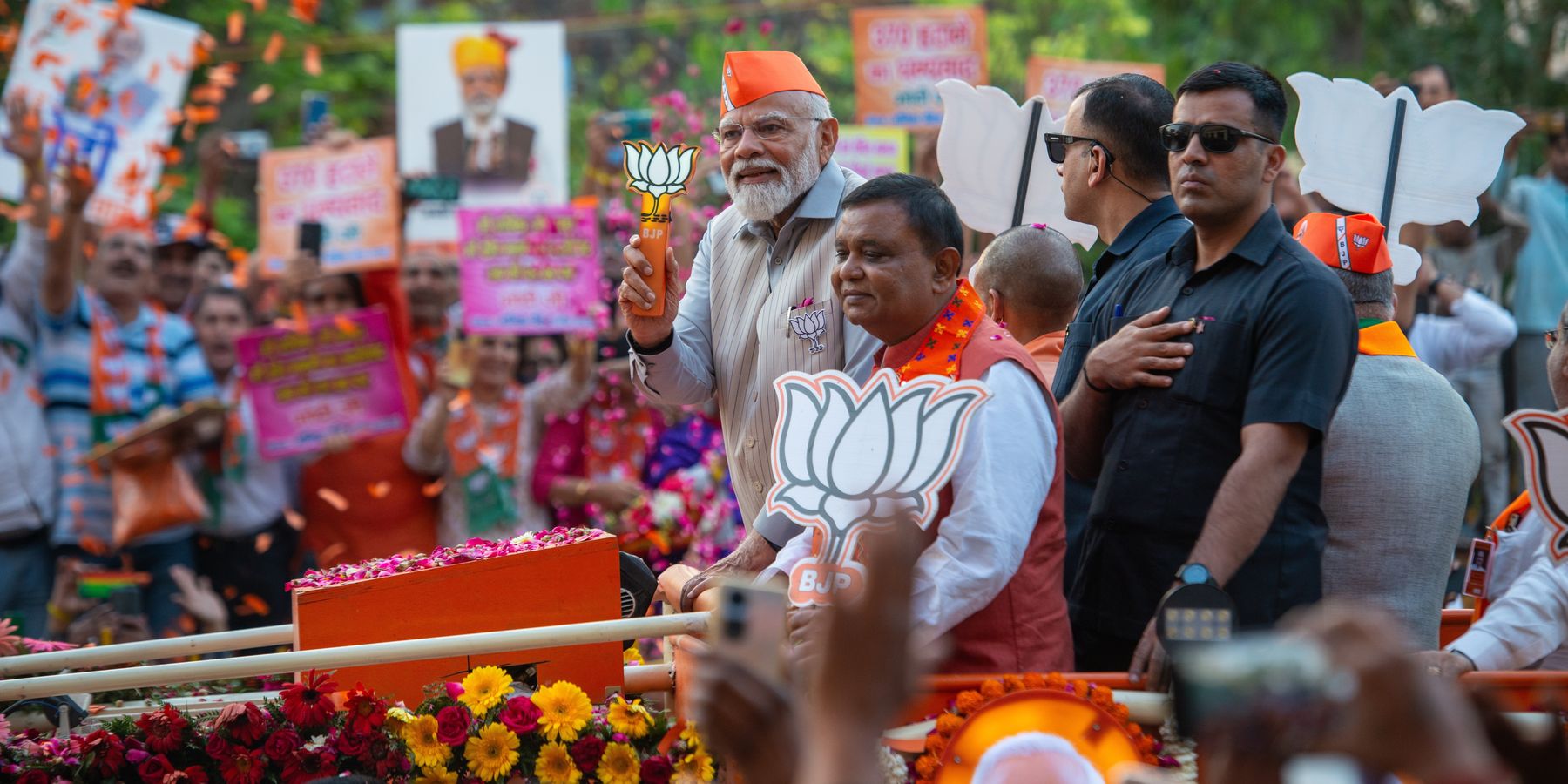India’s voters delivered a surprise setback to Prime Minister Modi and his Bharatiya Janata Party (BJP) in the national elections, but will it change India’s foreign policy and U.S.-India relations? Unlikely.
Results show that the BJP lost a net of 63 seats in the 543 seat Lok Sabha (People’s Assembly), the lower and more powerful house in the Indian parliament, reducing the party’s tally from the previous election from 303 to 240. This is 32 seats short of a majority in the house and forces the BJP to rely on its coalition partners to make up the numbers.
Modi won his two previous national elections with a clear majority in parliament and did not need his coalition partners to pass sweeping legislation for his goal of economic and ideological transformation of India toward a more conservative and business-oriented polity.
After this election, the BJP will be significantly constrained in passing more such legislation and will have to negotiate with its more moderate allies to get things done.
However, though Modi’s decade-long primacy in Indian politics was upended this week, the Prime Minister remains the most popular leader in India, and in pole position in domestic politics. The impact, however, on foreign policy, will be minimal. For one, the BJP’s key coalition partners are led by wheeling-dealing regional bosses with little interest in foreign policy. Modi, his charismatic foreign minister S. Jaishankar, and National Security Advisor Ajit Doval will continue to drive India’s foreign policy with no real constraints from domestic allies.
Second, India’s foreign policy is largely determined by its structural position in the region and the world, and the sense of deep suspicion toward China is shared across its domestic political spectrum. India would ideally like to see a diminished global role for China and increased influence for itself among the leaders of the Global South. Its successful hosting of the G20 summit in 2023 was an attempt to achieve both objectives.
As a major Global South middle power living in a tough neighborhood, India has managed to pursue its interests reasonably skillfully over the past couple of decades, coupling its steady economic rise with achieving increased strategic space for maneuverability.
A lot of this space has been gained through a major rapprochement with the United States, which began in the late Clinton years and was sealed after the landmark 2005 nuclear deal under George W. Bush. The dominant structural factor for this major shift was the common American and Indian interest in countering China. India’s nuclear arsenal was essentially legitimized and New Delhi was partially included in key global conversations in return for cooperation on countering China and deeper economic relations.
Since the nuclear deal, the bargain has essentially held, and U.S.-India ties have only deepened. Arms sales, military-to-military interoperability, joint exercises, and a broadly common approach to the Indo-Pacific has been their hallmark. Even major differences on ties with Russia have been managed adroitly at the highest levels.
And India’s economy, while not growing in anything like the spectacular fashion of its anomalous neighbor and rival China, nevertheless represents a considerable market and a major alternative as “de-risking” from China gets underway. Unlike the case of most Asian states, India’s biggest economic partner is the United States, not China. Finally, closer India-Israel ties achieved under Modi only help New Delhi in the U.S. Congress and White House.
Nevertheless, there may be signs that the bilateral relationship has peaked. For one, Washington has realized that the convergence with India on China has its limits. While cooperation in the maritime domain and the Indian Ocean continues to deepen, India is constrained on going much beyond its immediate backyard due to its domestic limitations and the major militarization of the Sino-Indian land border since Chinese intrusions in 2020.
Second, the rise of Ferdinand "Bongbong" Marcos Jr.in the Philippines has furnished a more attractive partner for the United States in its China-countering strategy.
Third, the Quad has generally underperformed and is unlikely to be a linchpin of US strategy going forward. Fourth, the Russia factor, though managed well so far by both capitals, remains a sore spot for the Biden Administration. And fifth, the conservative, nationalist turn in Indian policies has sometimes run up against U.S. interests more directly.
The bonhomie between Washington and New Delhi is solidly bipartisan but tends to be a bit stronger with a Republican in the White House. All this implies that U.S.-India relations may enter a period of some discord, especially if Biden is re-elected as president.
- G20 summit sets up Western clash with a rising Global South ›
- Canada's assassination charge against India puts Biden in a pickle ›
- What an even stronger Modi might mean for US-India relations ›
















